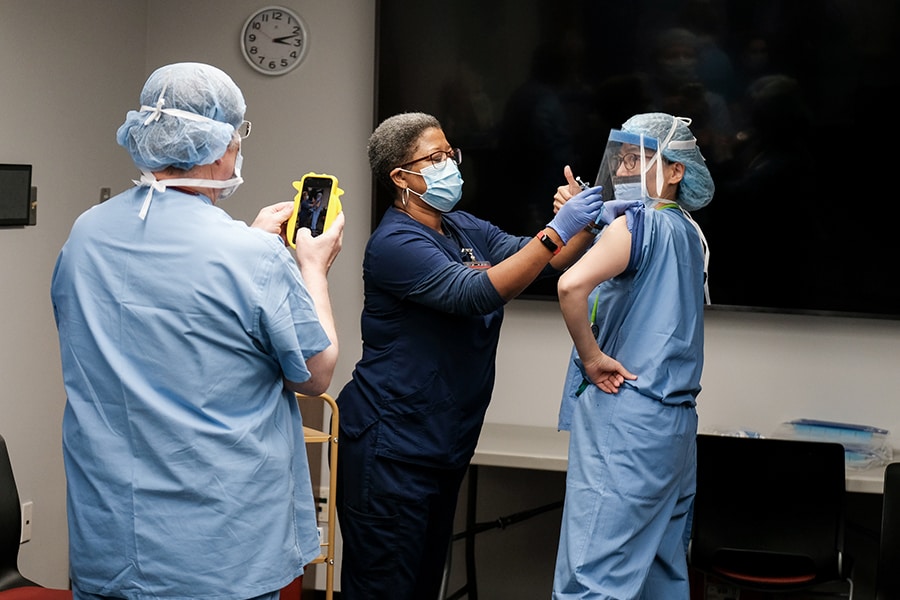
One more vaccine side effect: Global economic inequality
Wealthy nations in Europe and North America have secured the bulk of limited stocks of vaccines, positioning themselves for starkly improved economic fortunes
 Frontline workers receive the Pfizer vaccine at the Virginia Hospital Center in Arlington, Va., Dec. 16, 2020. The first wave of vaccines are being administered largely in wealthy countries, pointing to the conclusion that the post-pandemic world will be more unequal than ever. (Michael A. McCoy/The New York Times)
Frontline workers receive the Pfizer vaccine at the Virginia Hospital Center in Arlington, Va., Dec. 16, 2020. The first wave of vaccines are being administered largely in wealthy countries, pointing to the conclusion that the post-pandemic world will be more unequal than ever. (Michael A. McCoy/The New York Times)
LONDON — The end of the pandemic is finally in view. So is rescue from the most traumatic global economic catastrophe since the Great Depression. As COVID vaccines enter the bloodstream, recovery has become reality.
But the benefits will be far from equally apportioned. Wealthy nations in Europe and North America have secured the bulk of limited stocks of vaccines, positioning themselves for starkly improved economic fortunes. Developing countries — home to most of humanity — are left to secure their own doses.
The lopsided distribution of vaccines appears certain to worsen a defining economic reality: The world that emerges from this terrifying chapter in history will be more unequal than ever. Poor countries will continue to be ravaged by the pandemic, forcing them to expend meager resources that are already stretched by growing debts to lenders in the United States, Europe and China.
The global economy has long been cleaved by profound disparities in wealth, education and access to vital elements like clean water, electricity and the internet. The pandemic has trained its death and destruction of livelihood on ethnic minorities, women and lower-income households. The ending is likely to add another division that could shape economic life for years, separating countries with access to vaccines from those without.
“It’s clear that developing countries, and especially poorer developing countries, are going to be excluded for some time,” said Richard Kozul-Wright, director of the division of globalization and development strategies at the United Nations Conference on Trade and Development in Geneva. “Despite the understanding that vaccines need to be seen as a global good, the provision remains largely under control of large pharmaceutical companies in the advanced economies.”
©2019 New York Times News Service




